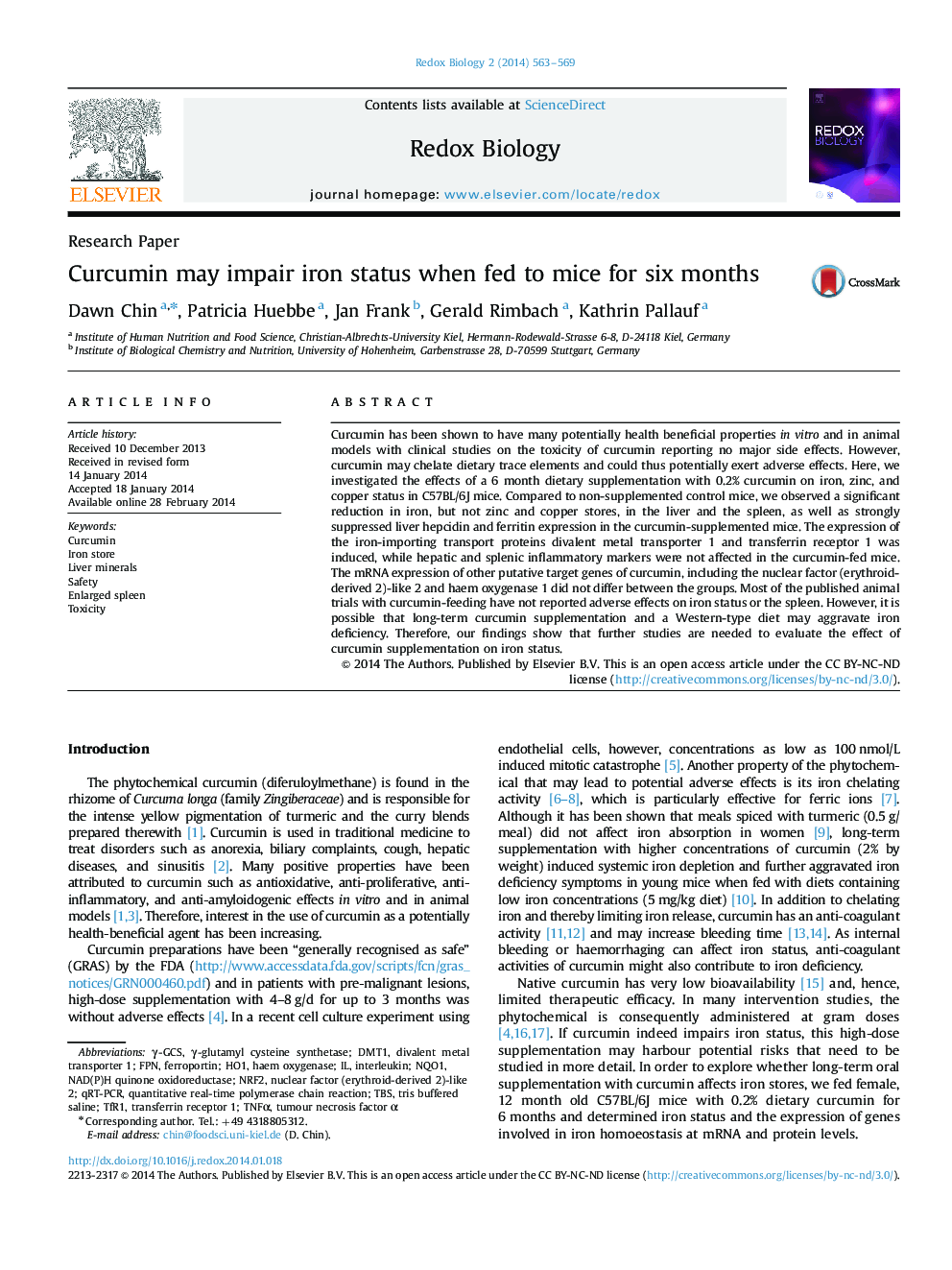| کد مقاله | کد نشریه | سال انتشار | مقاله انگلیسی | نسخه تمام متن |
|---|---|---|---|---|
| 1923040 | 1535848 | 2014 | 7 صفحه PDF | دانلود رایگان |
• 0.2% dietary curcumin for 6 months reduced iron stores in murine liver and spleen.
• Curcumin chelated iron but not zinc and copper in vivo.
• Liver hepcidin and ferritin expression was strongly suppressed in curcumin-fed mice.
• Curcumin induced expression of hepatic iron transporters DMT1 and TfR1.
• Curcumin did not affect hepatic and splenic inflammatory and oxidative markers.
Curcumin has been shown to have many potentially health beneficial properties in vitro and in animal models with clinical studies on the toxicity of curcumin reporting no major side effects. However, curcumin may chelate dietary trace elements and could thus potentially exert adverse effects. Here, we investigated the effects of a 6 month dietary supplementation with 0.2% curcumin on iron, zinc, and copper status in C57BL/6J mice. Compared to non-supplemented control mice, we observed a significant reduction in iron, but not zinc and copper stores, in the liver and the spleen, as well as strongly suppressed liver hepcidin and ferritin expression in the curcumin-supplemented mice. The expression of the iron-importing transport proteins divalent metal transporter 1 and transferrin receptor 1 was induced, while hepatic and splenic inflammatory markers were not affected in the curcumin-fed mice. The mRNA expression of other putative target genes of curcumin, including the nuclear factor (erythroid-derived 2)-like 2 and haem oxygenase 1 did not differ between the groups. Most of the published animal trials with curcumin-feeding have not reported adverse effects on iron status or the spleen. However, it is possible that long-term curcumin supplementation and a Western-type diet may aggravate iron deficiency. Therefore, our findings show that further studies are needed to evaluate the effect of curcumin supplementation on iron status.
A 6 month dietary supplementation with 0.2% curcumin in C57BL/6J mice led to a significant reduction in iron, but not zinc and copper stores, in the liver and the spleen, and suppressed liver hepcidin and ferritin expression. Furthermore, the expression of the iron-importing transport proteins divalent metal transporter (DMT) 1 and transferrin receptor (TfR) 1 was induced in the curcumin-fed mice. These data suggest that long-term curcumin supplementation and a Western-type diet may aggravate iron deficiency.Figure optionsDownload as PowerPoint slide
Journal: Redox Biology - Volume 2, 2014, Pages 563–569
